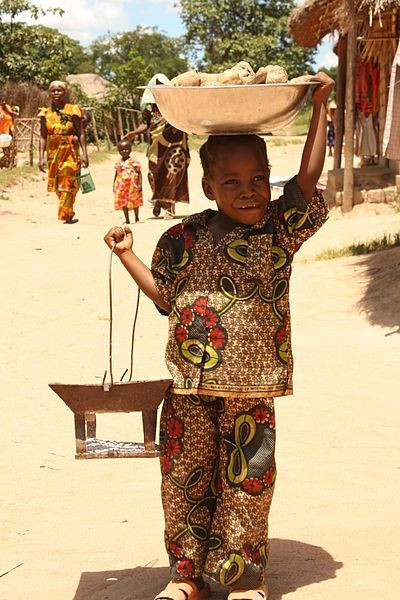Apple, Sony, Microsoft under fire for child labour exploitation

Amnesty International and Afrewatch (Africa Resources Watch) have come forward with accusations of child labour exploitation by multinational tech companies, including Sony, Samsung and Apple.
In a report published today, titled “This is what we die for: Human rights abuses in the Democratic Republic of the Congo power the global trade in cobalt”, 16 global brands are identified as failing to conduct basic checks on where their source of Cobalt comes from.
The chemical Cobalt is used to create the lithium-ion batteries used in smartphones and other electronic devices. Amnesty International traced the sale of Cobalt used by the identified companies back to mines employing children as young as seven working in dangerous conditions.
The report revealed that traders would buy cobalt from these mines and sell it to Congo Dongfang Mining (CDM), a wholly-owned subsidiary of Chinese mineral giant Zhejiang Huayou Cobalt Ltd (Huayou Cobalt).
After processing the cobalt, Huayou Cobalt and CDM sell it to battery component manufacturers in China and South Korea, who in turn, market it to battery makers supplying companies such as Daimler and Volkswagen.
Of the 16 multinational companies that Amnesty International named and contacted - including Apple Inc., Dell, HP Inc. (formerly Hewlett-Packard Company), Huawei, Lenovo (Motorola), LG, Microsoft Corporation, Samsung, Sony and Vodafone, as well as vehicle manufacturers like Daimler AG, Volkswagen and Chinese firm BYD - only one company admitted to using the Cobalt supplier.
Four were unable to admit the connection for certain, six companies said they were investigating the claims and five companies outright denied the claims.
“Many companies denied sourcing cobalt from the DRC and/or Huayou Cobalt – though they are listed as customers in documents of other companies who are listed as buying from Huayou Cobalt – but did not explain whom they sourced cobalt from,” the report notes.
“Considering the predominance of cobalt from the DRC in the global market, it is unlikely that all these large companies are not sourcing any cobalt from the DRC.”
Over fifty percent of the world’s supply of cobalt comes from the Democratic Republic of the Congo (DRC).
While many Multinational companies claim to have a “zero tolerance policy” for exploiting child labour, “this promise is not worth the paper it is written on when the companies are not investigating their suppliers,” says Amnesty International human rights researcher, Mark Dummett.
Researchers from Amnesty International were told that many workers in these mines faced 12 hour working days without the most basic of equipment, such as gloves, face masks, or work clothes, leaving them susceptible to injuries and diseases.
At least 80 artisanal miners died underground in southern DRC between September 2014 and December 2015 alone. The true figure is unknown as many accidents go unrecorded and bodies are left buried in the rubble.
Amnesty International also reported that the children working in the Huayou Cobalt mines often work up to 24 hours a day, but make only between one to two dollars for their labour. This paints a stark contrast to the billions the alleged multinational companies make by using the resources these underage children are mining.
Amnesty International and Afrewatch are now urging the multinational companies to conduct their due diligence and take responsibility for their supply chain, saying their lack of background checks undermines child labour laws and effectively reduces modern technology as a byproduct of illegal labour.
“They (MNCs) must take remedial action on the harm suffered by people whose human rights were abused,” says Dummett.
The report also concluded that CDM and Huayou Cobalt, as the smelter, are expected to know how the cobalt they buy is extracted, handled, transported and traded.





















